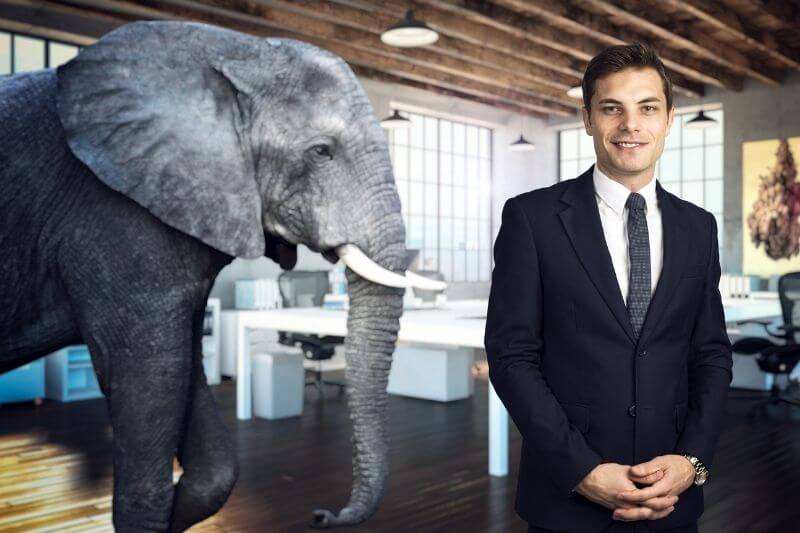What makes an effective interview panel?
We all prepare to be an interviewee, but rarely (if ever) do we prepare to be the inquisitor, er, I mean interviewer.
Staff recruitment and replacement is expensive – ranging from between 30 – 200% of the costs of employing a staff member. Recruitment costs are far more than just the costs of hiring the new person, and include loss of productivity (loss of staff, backfill, unproductive time before the person leaves and unproductive time of the person coming into the role), training, the separation costs and the start-up costs of the new person.
Most academic recruitment processes use formal interview panels, so a well functioning interview panel is essential in selecting the right person. Poor recruitment decisions can be far more costly in human and financial terms than just the immediate staff replacement costs and cause enormous reputational damage to your institution.
The purpose of this article is to highlight solutions to the seven most common problems I have seen and encountered on academic interview panels.
- 1. Protect candidate confidentiality
- 2. Have clear processes for declaring conflicts of interest
- 3. Ask clear questions
- 4. Confront the elephant in the room
- 5. Have a well chaired academic interview panel
- 6. Ensure sufficient time for interviews
- 7. Brief the interview panel about the position they are interviewing for
- Conclusion
Disclaimer: This post assumes that normal institutional human resource practices and jurisdictional employment laws have been considered for the interview, including interview panel diversity and size and the expertise and seniority of panelists. This article will not discuss potentially discriminatory questions such as age, sexual orientation, ethnic / racial background, marital status or union membership. Employment laws vary by country, and sometimes state, but generally the principles are similar.
1. Protect candidate confidentiality

Some time ago, I had the awkward experience of applying for a job at another university, only to find that my (then) current boss was on the selection panel. My boss did not declare a conflict of interest – instead, left it to me to point the conflict out to the panel. Further, the boss disclosed to my Vice Chancellor that I had applied for the role, potentially jeopardising my existing employment.
The higher education sector is relatively small, and the more senior or specialised you become in your role, the fewer the positions available. Therefore, in a small country like Australia, where there are 40 registered universities, when a senior appointment comes up, there is a good chance that someone from your institution will have been tapped on the shoulder for it.
Given the high costs of recruitment, universities are, understandably, reluctant to let go of their top staff. Some managers also take it as a personal affront that staff are applying for roles elsewhere. While employees are perfectly entitled to apply for other jobs, I have participated in interview panels where candidates who have been ‘outed’ to their current employer have been penalised. Understandably this makes prospective job hunters nervous about the confidentiality of your interview processes.
Your role is to get the best person for the job.
Prospective candidates will be well aware of the perceived risks of being seen to apply for a job elsewhere. Therefore, if you want to attract the best talent for your role, guarantee the confidentiality of all candidates. I know several candidates who have withdrawn from interviews because of a lack of reassurance about the confidentiality of the application process.
Some institutions like to hold public lectures for their shortlisted candidates. This immediately breaches candidate confidentiality. Apart from being unfair to unsuccessful candidates, you are likely to miss out on applications from a number of potentially appropriate candidates.
Similarly, interview processes that bring all of the candidates together can jeopardise the quality and quantity of applications you are likely to receive (aside from being a very Lord of the Flys approach to recruiting).
Ensure that the interview processes and flow (including the location of the interviews and the interview waiting room) protect the identity of the candidate from staff and other candidates. Candidates should never meet other candidates going in and out of the interview. In some cases, it may be appropriate to hold interviews off campus to protect candidate confidentiality.
It should go without saying that all academic interview panel members are held to the highest levels of confidence. As my example above shows, this does not always happen. Some interview panels require members to sign confidentiality agreements to help overcome this.
2. Have clear processes for declaring conflicts of interest
There is a lot of confusion about conflicts of interest. Essentially, a conflict of interest means that an individual holds multiple roles or relationships where their interests could work in opposition to each other.
In an academic interview setting, a conflict of interest is where your relationship to the candidate could be construed to have inappropriately influenced the outcome of the decision for the wrong reasons. Do the scandalous newspaper headline test on this one.
For example, have you (or your best buddy, family member etc) have ever had an intimate, personal relationship with the candidate? It could be construed as a COI. Was the candidate a former boss of yours who disliked you or even sacked you? COI.
When you are recruiting, prior direct objective knowledge or experience of a candidate is NOT a conflict of interest. In fact, it is important knowledge that you can, and should pass onto the interview panel. However, indirect knowledge through gossip or hearsay should be treated more cautiously.
For instance, if you have previously worked with a candidate and know that they would or would not be a good fit for the organisation, that is NOT a conflict of interest. It is valuable inside information. Discuss it confidentially with the chair, or even with the panel. Provide your reasons as objectively as possible, ensuring that you have no conflict of interest. Your broad experience with that person is far more insightful than anything that can be gleaned in a one hour interview. If the person is interviewed, there is no reason that you should not sit on this interview panel.

There have been some recent, senior appointments in Australia (across several sectors) that have been terminated due to inappropriate sexual behaviour in the workplace. Turns out that there was a pattern of this behaviour that was known in previous institutions and roles. In some cases, the information was even in the public domain. This is the kind of information that should be discussed by the interview panel if a member of the panel is aware of this behaviour.
Contentious and high risk issues should be actively pursued by interview panels. There has also been a long pattern of institutional cover-ups of bad behaviour which are no longer tolerated, driven partly by the #MeToo movement. These are now coming back to reflect badly on any party that turned a blind eye.
There is nothing worse than making a bad appointment and later having a member of the academic recruitment panel saying “I knew he / she was a ……. but didn’t want to say anything”. Not acting on this kind of information creates an enormous moral and reputational risk for your institution.
As a general rule:
- Inside knowledge of a candidate is not a conflict of interest if managed appropriately.
- A close personal relationship is likely to be a conflict of interest.
- A previous working relationship is generally not a conflict of interest unless it stepped into a personal territory or there were workplace disputes.
- If someone has a known history as a sexual predator [or insert other inappropriate behaviour] you don’t want them associated with your organisation.
3. Ask clear questions

The purpose of an interview is to find out whether or not the candidate is a good fit for your organisation. Therefore, use the interview time carefully and effectively to really get to the heart of the issues that will ensure that the candidate will really meet the needs of your organisation and your role.
The interview questions should be shaped around the position requirements (such as content expertise, leadership and management skills) and asked in a way that enable the candidate to demonstrate their fit for your role.
No matter how senior the role, the candidate will be nervous. Some people perform better than others under pressure, and everyone has bad days occasionally.
Cryptic, highly technical or multi-level questions can stump even the most confident and competent interviewee. While you might want to understand how a candidate behaves under pressure, giving them the third degree in their first meeting is not the way to elicit their best performance or, perhaps reflect the values of your organisation.
Just because someone does not understand your question does not mean that they are stupid. Variations in terminology, context and phrasing or just nerves can make apparently simple questions unclear to others. Have some ways of rephrasing what it is that you really want to know.
Candidates should be able to ask to clarify confusing questions.
Our article for candidates on how to prepare their CV identifies some red flags that interview panels should be alert to and may want to probe more fully.
4. Confront the elephant in the room

I have sat in numerous academic interview panels where there was an obvious elephant in the room that no-one felt brave enough to confront. Often, these have been important issues on which the panel have had to seek clarity afterwards, or sticking points where people have speculated, costing the candidate the job.
Ideally, if there is any concerning issue regarding the candidate, the panel should develop a strategy beforehand to address it.
For example, if you are aware of negative media coverage about the candidate, but not so concerned that you have invited them to interview you should:
- Raise it with the candidate before the interview, and/or;
- Ensure the panel has a strategy to approach it in the interview, and;
- If the candidate is successful in the appointment, have a very good communications strategy developed.
You can be absolutely certain that someone will dig up any existing negative stories on your new appointee, so be prepared with a response that both justifies your appointment, and saves face for the appointee. A good recruitment process should include a social media audit of successful candidates.
If a question arises during the interview process that makes you want to probe more deeply, you should ask it. Depending on the panel dynamics, it may be appropriate to write a note to the chair of the panel about your concern.
For example, I was the external panel member for the senior role of an organisation where I did not know the the rest of the panel (who were largely board members), so I was unsure of the group dynamics. During the interview, I raised a concern with the panel chairperson of by passing him a note. The chair invited me to ask an additional question of the candidate related to the issue. Afterwards everyone said that they had been thinking exactly what I asked, but no-one had been brave enough to ask it.
There are rarely risks to asking difficult questions, as long as they don’t embarrass or discriminate against the candidate – but there are lots of risks from unasked questions!
5. Have a well chaired academic interview panel
An interview panel is like any team. The panel needs clear objectives, processes for making decisions and strong leadership. Even though the academic interview panel might come together temporarily and for a very short period of time, the chairperson plays a vital role in ensuring the best candidate is chosen.
A good chairperson will do the following:
- Ensure that all academic interview panel members are clear of their roles and responsibilities, confidentiality requirements, and declares conflicts of interest.
- Ensure that interviewers are clear about what the role you are recruiting to entails.
- Keep the interview process to time, including the time management of each question.
- Agree on interview questions and who will ask those questions.
- Agree processes for making decisions and resolving disputes, including who will have the deciding vote. This may be determined by university HR practices.
- Clarify the ground rules – including how to ask additional or clarifying questions if needed.
- Be pleasant and respectful to interviewers and the candidates.
- Respect input and invite feedback.
- Ask clarifying questions in cases of ambiguity.
- Ensure the comfort of the candidate.
- Sum up at the end of each interview.
- Invite questions of the candidate (if time, and if appropriate).
- Provide timely feedback of the process to HR or the appropriate department.
6. Ensure sufficient time for interviews

Recruiting seems to have a lot of similarities with house buying. For the size and importance of the decision, we generally spend a very short amount of time investigating an investment that can have expensive and uncomfortable consequences when we get it wrong.
If a search team / recruiter has been employed, they should have done a lot of background work, including preliminary screening, interviews and possibly psychometric tests and prepared a comprehensive brief for the interview panel. This means that you will have a lot of background information on the candidate by the time they get to interview and be able to really explore their fit to the organisation.
For a senior executive role, it is normal practice for members of the academic interview panel, or other senior staff members to spend some informal time, outside of the interview panel getting to know the candidate (while maintaining confidentiality).
As an interviewer, there is nothing worse than getting to the end of the interview period with unanswered questions, because you rarely have the opportunity to go back and get further information.
Most interviews normally last about an hour. Sometimes they involve multiple processes. There is no hard and fast rule about the length of time for an interview, but the panel should ensure that they have time to gather sufficient information to be confident with their decision.
7. Brief the interview panel about the position they are interviewing for
One of the greatest causes of contention I have experienced in recruitment panels is when the members of the panel have different perspectives of what the job entails, or, they have different expectations of what the university wants.
This tends to arise when there is a tension between ‘prestige and practicality’. For example, prestigious universities wanting the most highly ranked professor, even though the fit isn’t perfect (i.e. valuing academic credentials over practical credentials) or when someone very senior applies for a role for which they are overqualified. For instance, people who have been in senior executive roles applying for operational roles where their focus will need to shift from strategic leadership to day-to-day operations work.
It is easy for panels to be flattered by the well qualified or well credentialed applicant for the role, but the most important thing is fit.
Ideally (and normally) the line manager of the appointee should sit on the interview panel. Given that this person is likely to have the clearest perspective of the requirements for the role, any confusion over the role should be directed to that person.
Conclusion
Preparing the academic interview panel is commonly overlooked in the process of recruiting new academic staff. As with all well functioning teams, clear guidelines, strong team leadership in the form of the chair, agreed ground rules and processes for resolving disputes are essential to optimise the recruitment process.
Too often, interview panels overlook valuable inside information on the basis that it is a conflict of interest. Ensure your panel is clear about the boundaries and how to use the knowledge you can reasonably have of a candidate.


Hello, the whole thing is going sound here and ofcourse
every one is sharing facts, that’s actually excellent, keep up writing.
Hey, you used to write excellent, but the last several posts have been kinda boring?
I miss your tremendous writings. Past few posts are just a little bit out of
track! come on!